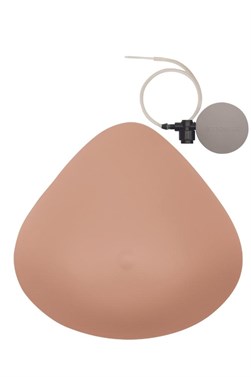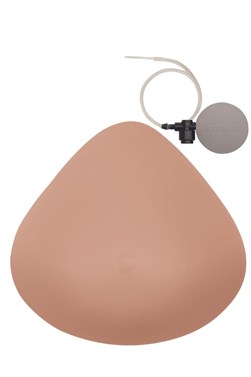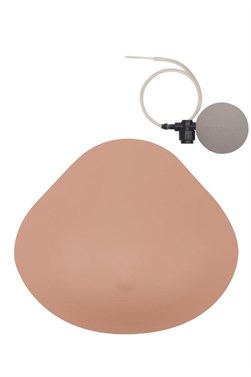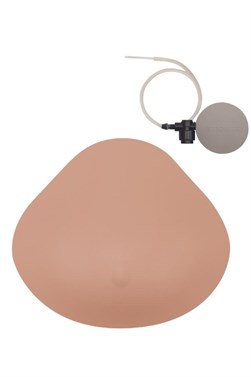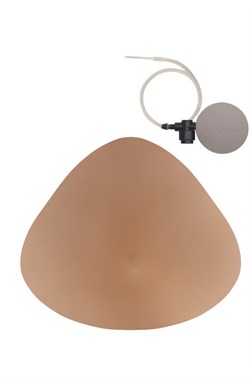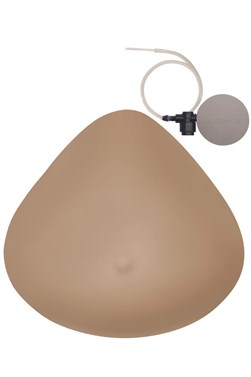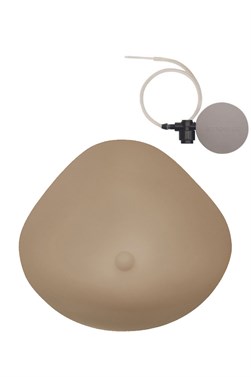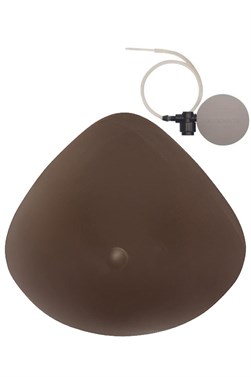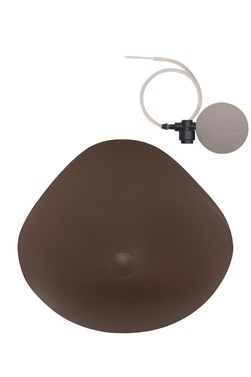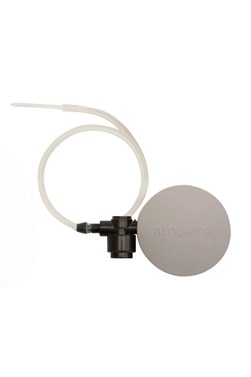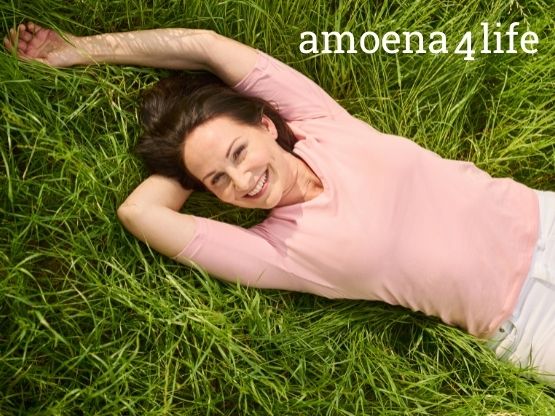Introducing Adapt Air: "We Want To Give Women Back Their Individual Body Shape"

We talk to Amoena’s product development specialists about how technical progress and new materials have combined to enable the introduction of a new type of breast form.
Editor: Where does Amoena get its incentive for the development of new products?
Nils Stelter project manager, breast form development: We’re always looking at ways to help women who have had breast surgery. Sometimes new technical possibilities or materials mean that we can introduce new products or develop existing ones to meet women’s needs. Sometimes completely new requirements arise – for example, from new surgical methods.
How do you learn about women’s needs following breast surgery?
Claudia Reichl, product manager, breast forms: As a leading global provider of breast forms, we get a lot of feedback from women from different countries. It’s my job to stay close to the market and systematically assess this feedback with my colleagues.
We also very much value the input we get from medical staff and specialist retailers. They have direct contact with breast-operated women and know about the challenges that arise when trying to find a breast form that fits perfectly.
There are a lot of breast forms available these days. How difficult is it to find the right one?
Nils Stelter: Every woman is unique, as is her silhouette. We are always looking for new ways to harness technology and innovation to offer better solutions – particularly for special challenges.
How do you define ‘special challenges’?
Claudia Reichl: Some women have a very uneven, sensitive area of scarring; others experience weight fluctuation due to medication, while some need a non-standard size breast form. Some of these requirements are temporary: lymphoedema in the breast area can cause short-term size changes.
In all these cases, a breast form that you can individually customise really helps. Most standard forms cannot meet the need.
Nils Stelter: These are exactly the women who often struggle to find a breast form that fits really well. We have worked intensively on a solution in the last few years, and now we can offer a product range with our Adapt Air breast forms that answers their needs.

What is special about this new breast form?
Nils Stelter: The new Adapt Air form has an integrated air chamber and a very soft, specially developed valve. Using a small pump that’s supplied with the breast form, it’s easy to add volume to the breast form or release it as required. As a result, the breast care nurse or fitting specialist can customise the volume of the form to each woman’s individual silhouette, which significantly shortens the fitting process and enables an ideal result to be achieved. The woman can also do the same thing very easily herself, at home.
Claudia Reichl: The back of the breast form adapts to the woman’s chest wall to ensure a comfortably close fit, and we’ve also included temperature-regulating Comfort+ material to help prevent sweat build-up beneath the form. And because of the air chamber and the lightweight silicone we’ve used, Adapt Air breast forms have a significant weight advantage over standard forms.
That sounds great – but doesn’t the air escape after a while?
Claudia Reichl: Thanks to the special valve, the air remains securely in the form until it is released again. Our test wearers did not experience any leakage and didn’t need to re-pump their forms for months. Adapt Air even tested well on an aircraft, with no noticeable volume change.
We have a prototype in the office in which the air volume has barely changed for three years!
Nils Stelter: The valve was one of the greatest challenges to develop. Once we had created the perfect prototype together with our test wearers, we spent almost another two years working meticulously on the development of the manufacturing process before the product was finally able to go into production.
So is this the perfect breast form?
Nils Stelter: There are many women who are very happy with their existing breast form, and that’s how it should be. But for all those who have not yet found a breast form that fits really well, or who have specific fit requirements that they don’t feel have been met yet, we’re delighted that we can now offer Adapt Air as a potential solution. Adapt Air puts the control into the wearer’s hands, because she can customise the fit to suit her needs – as and when required.
What development trends do you see for the future?
Nils Stelter: Adapt Air is the only breast individually customisable breast form currently in production. The trend towards complete customisation – even of a basic breast form – remains a challenge for the future.
Claudia Reichl: We will continue to listen to feedback from the women who benefit from Adapt Air and the medical professionals and specialist fitters who help them, so we can constantly develop our product range to suit their needs. When a woman comes to me, overjoyed that she can finally wear her favourite clothes again thanks to one of our breast forms, that she can go through life with renewed self-confidence, I’m touched every time. That is what motivates me to do the work I do.
Claudia Reichl has been at Amoena for 18 years and, as a product manager, she co-ordinates all product-related activities for breast forms, acting as a central interface between product development, marketing and sales.
Nils Stelter has been a project manager in product development at Amoena for over 20 years. As well as the development of new products and production of prototypes, he also ensures optimal production processes. It’s his job to ensure these amazing new products get into production.
Together with their colleagues, and in close collaboration with test wearers, Claudia and Nils are able to translate customer needs into new products that help support women’s confidence after breast surgery.





